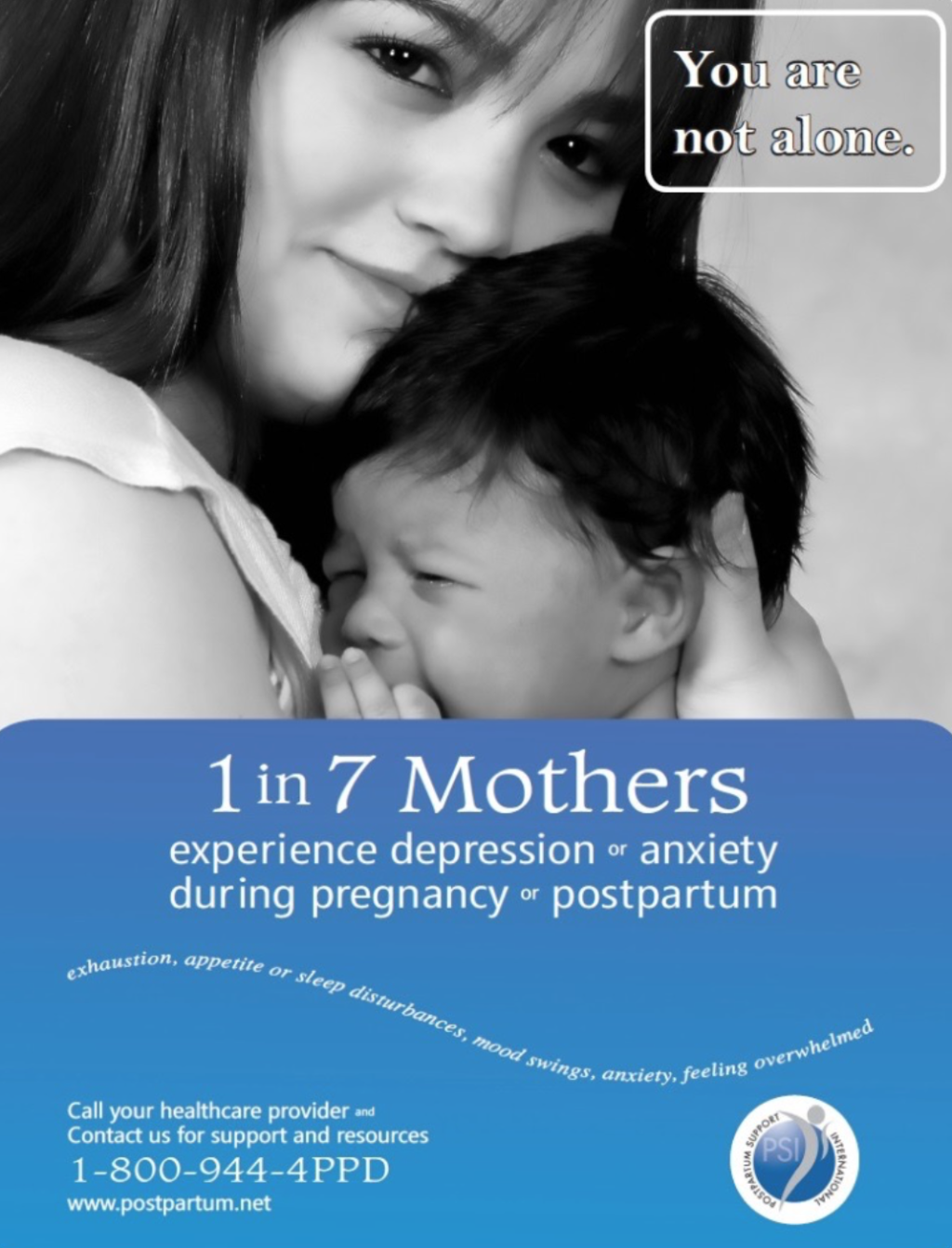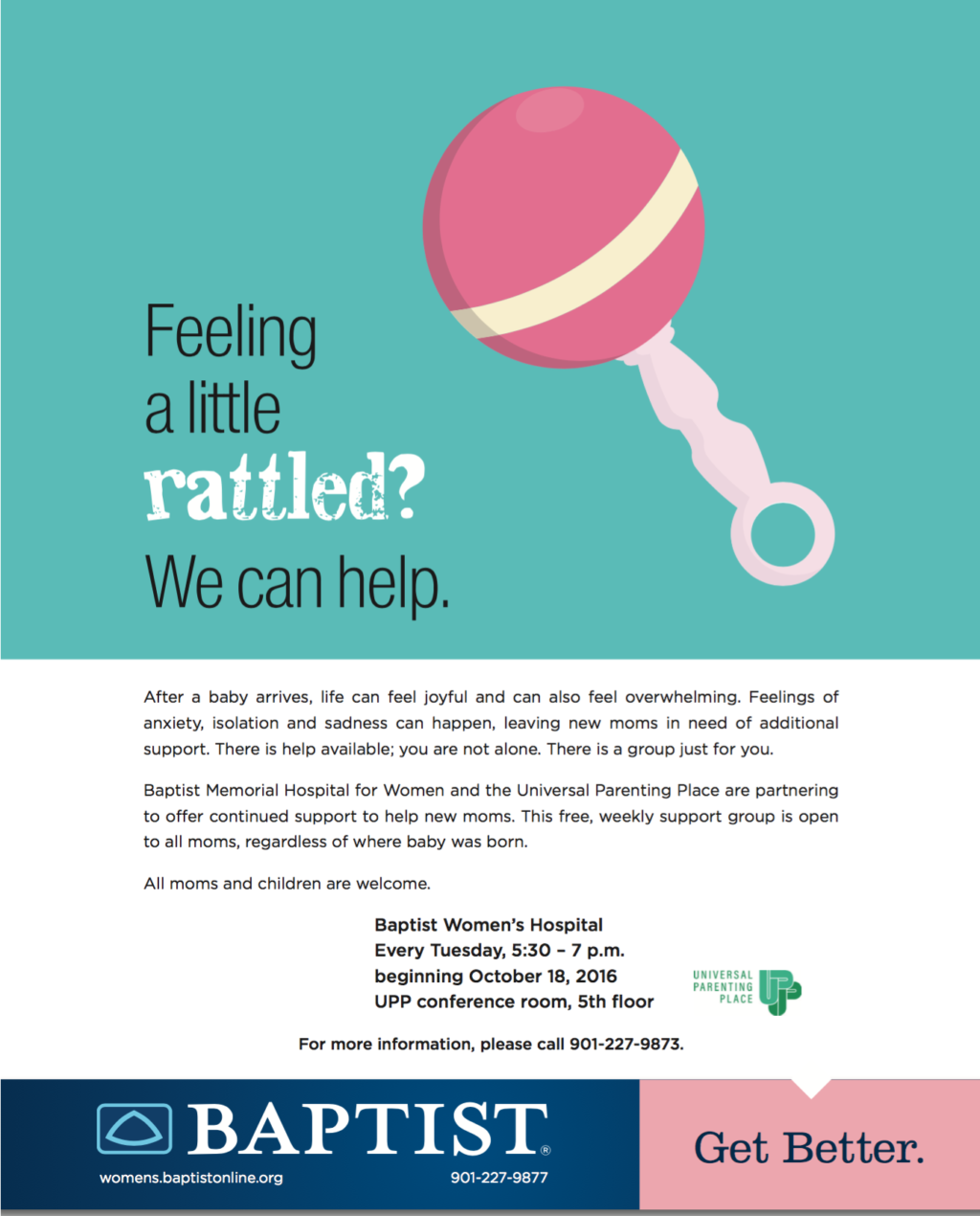Fourth Trimester Feelings
The most joyous event in a woman’s life is defined as welcoming a new baby into her life. Societal expectation sends this message with delightful pictures of darling newborns and airbrushed adoring moms. The recent arrival of the third British royal baby seems to confirm that, right?
Every mom reading this knows that it is not #REALMOMLIFE. Motherhood is an identity that is as unique as every person; there is no singular ideal that we should all aspire to, but deep inside, we do JUST that. The pregnancy and postpartum period is a vulnerable transition time for new moms. Whether the mom had a difficult delivery, easy delivery, or adoptive delivery—being responsible for a tiny new person 24/7 rattles the emotions and abilities of every new mom. (Can we all say amen?)

Transition and change is never a smooth journey; it is always a learning curve. When that curve seems to be difficult, a mom needs to know when and who to reach out to for help. 1 in 7 new mothers experience postpartum mood adjustment disorders—it is the most common, but least discussed postpartum complication. Postpartum thoughts and emotions run an entire spectrum that the mother may not have been prepared to experience. The addition of physical recovery and sleep interruption compound her feelings as well. Moms need to know that postpartum mood issues are not just depression—they can be anxiety, OCD, and other emotional reactions that are unfamiliar to the new mom.
This list of symptoms may help a mom to know if she is experiencing postpartum depression or anxiety. If any of these have lasted more than a few days, contact your healthcare provider:
-
- Feelings of intense anxiety that hit with no warning
- Difficulty focusing on things and feeling “foggy”
- Excessive crying and feeling sad, lonely
- Withdrawing from family/ friends and activities that you used to enjoy
- Difficulty sleeping or staying asleep; feeling worried or agitated
- Mood swings and appetite change
- Feeling overwhelmed, feeling guilty
- Unable to get out of bed/ lack of energy
- Having scary fantasies or feeling out of touch with reality
- Thoughts of hurting yourself or your baby
- Feelings of despair or hopelessness
The last three points that are in bold print require immediate attention.
The doctor is your first line help. A mom should call and let him/her call exactly how she is feeling. If a mom is seeing/ hearing things that other people do not, or she has thoughts of harm, that is a true emergent situation; she needs to seek care right away. She should call her doctor and go to the nearest emergency department or treatment center for care.
Support is available online and in person in our community. A national resource is Postpartum Support International (PSI), which has a hotline and many resources for family members as well.

PSI contact information is (800) 944-4PPD or (800) 944-4773.
The website address for PSI is www.postpartum.net
Locally, there is a specific support group that meets at Baptist Women’s Hospital. The group “Rattled” meets in the Universal Parenting Place (UPP) conference room (5th floor) on Tuesdays from 5:30-7:00 PM. The UPP has many resources for parents, including education, counseling, and support that are free to all. It is a place to share and learn in an open, judgment-free atmosphere.
MOMS- Do not be afraid to ask for help; you are not alone, and with help, you will be well.

For more information, please contact Beautiful Beginnings at (901) 227-9873 or the Universal Parenting Place (UPP) at (901) 227-9558.
Written By:
Kristi Davis MSN, RN, IBCLC
Baptist Memorial Hospital for Women
SaveSave








